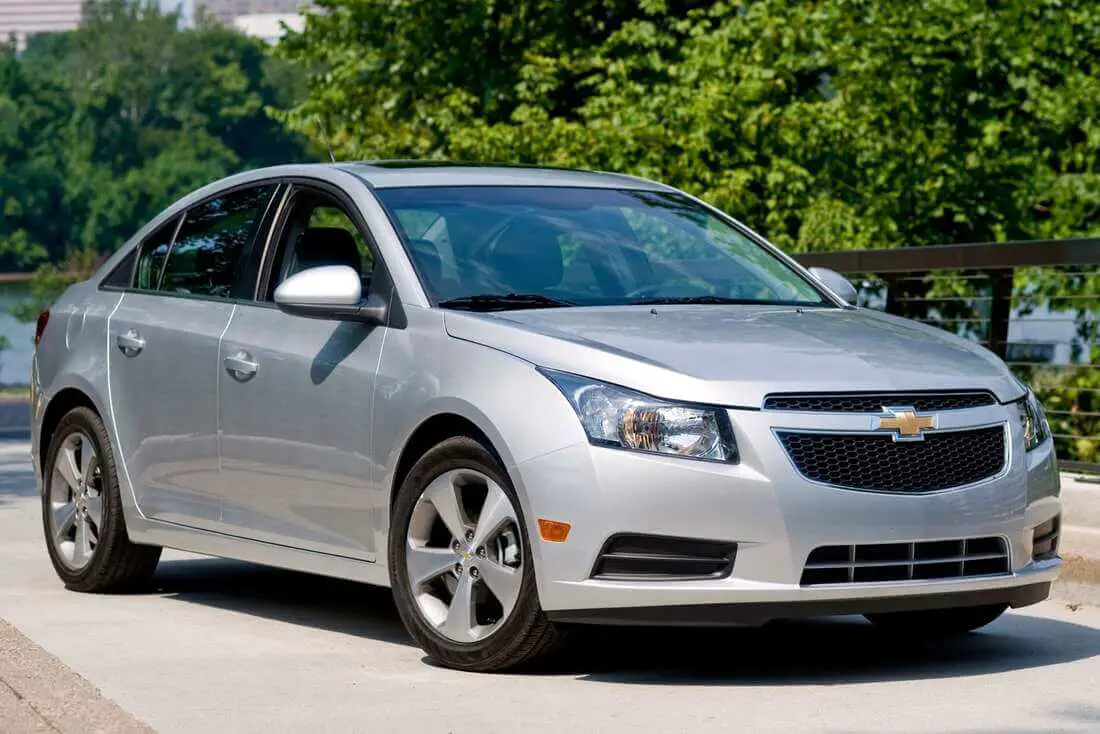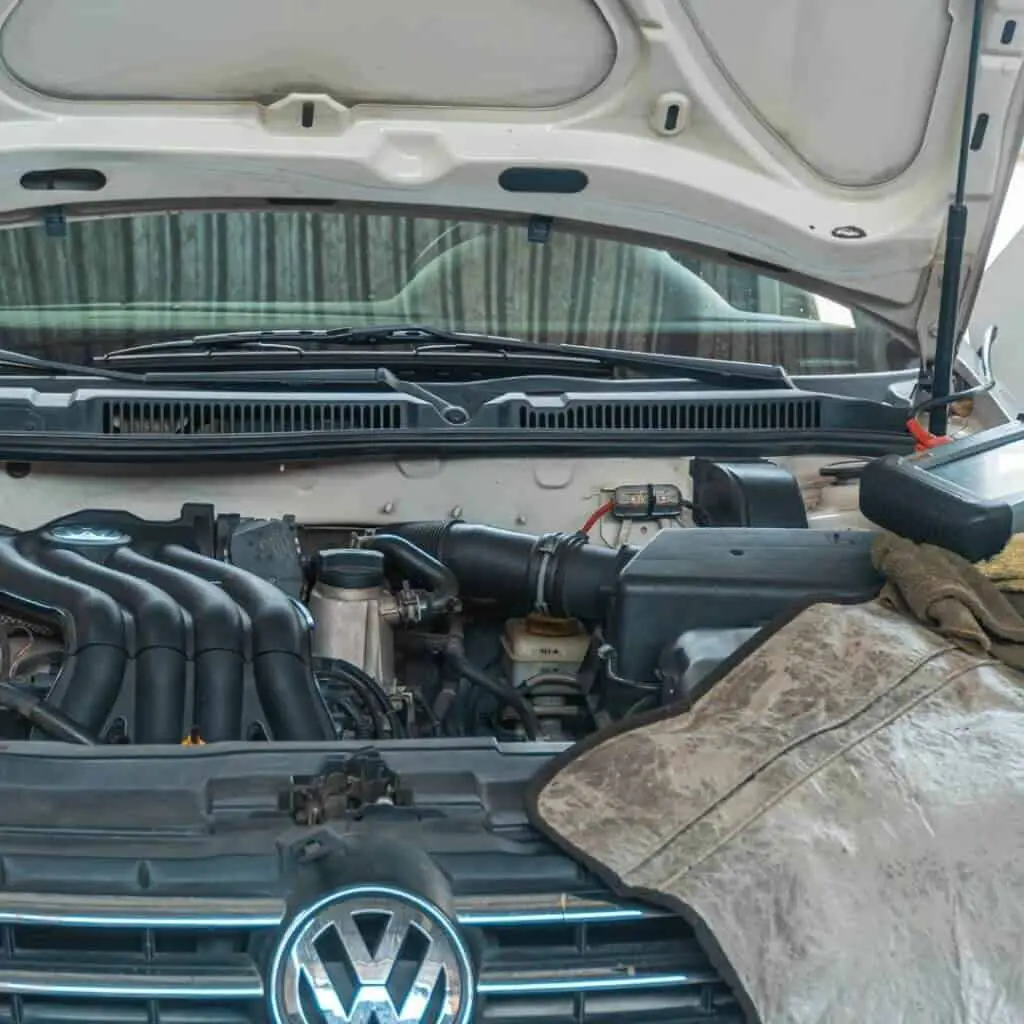Chevy Cruze is a vehicle that’s been around for a while, a compact vehicle with a generally good reception. Chevrolet’s globally developed and produced sedan sees popularity even today. However, its issues are something that can curb the enjoyment of driving the car. That’s why knowing Chevy Cruze problems is important.
Chevy Cruze
The Chevrolet Cruze was first produced in 2008. The initial design had four doors but soon enough, in 2011, the vehicle got a five-door variant. The car replaced several Chevrolet models such as Chevrolet Optra internationally and Chevrolet Cobalt.
Previous use of the nameplate was applied to the 2001 car that was co-produced with Suzuki. This vehicle was based on the Suzuki Ignis, a subcompact car that doesn’t resemble the 2008 Cruze.
The general reception of the vehicle was positive. With the particular focus being on the safety qualities of the car. Chevrolet Cruze would continue to get decent ratings across its models though some are considered less reliable than others.
Chevy Cruze Problems

Chevy Cruze has had a few issues throughout its lifespan. These mostly tie to its engine with stalling and misfires being common. However, coolant leaks are something we are likely to encounter during our time with the Chevy Cruze.
- Coolant leak
Cruze owners have had issues with Coolant leaks for a while now. The reports note multiple sources of the issues. The most reported cause is a loose hose connection, which allows the coolant to exit into the car, spilling through it. The radiator and water pump are both second place when it comes to the likelihood of issues.
A broken radiator causes the engine to run hot or overheat, leading to cracks across the plastic parts of the radiator. Eventually, the coolant will leak through the cracks and fill the interior of the car.
Lastly, the water pump indirectly leads to the overheating present in other issues that cause leaks which gives us more time to notice the issue before it becomes critical. Either way, the issue has multiple faucets that can cause it so looking out for any symptoms related to those is smart. [1]
- Engine misfires
Another issue that gets reported frequently is engine misfires. The vehicle could have this issue happen out of nowhere, sometimes even after refilling oil or doing maintenance. This issue is most reported with the 2014 Chevy Cruze though that year isn’t exclusive when it comes to suffering from this issue. [2]
The most common cause of issues is spark plugs. A spark plug of a Chevy Cruze can go bad from general wear and tear or the internal state of the car. Dirty fuel injectors as well as dirty air filters can end up causing them to go bad early. Idling for prolonged periods of time could result in similar issues.
Replacing spark plugs if they do malfunction is often guaranteed to solve misfires. The only situation where this will not occur is when something else is broken. Which is likely to be the coil pack. The coil pack can fail from corrosion, making our spark plugs receive an inadequate amount of voltage. Additionally, our RPM could also drop due to this malfunction.
- Stalling and smoke under the hood
A Chevy Cruze engine could also stall causing its own slew of issues. The stalling issues can leave our car not moving at an important moment, roughly entering gears, and spending much more gas.
The reason for the appearance of this issue seems to be tied to damaged cylinders and leaking oil. It’s the most accepted cause of the problem although the list of component problems that tie into stalling isn’t quite complete.
On top of this, it’s possible to experience smoke coming from within our car. This also ties into the oil leaks as oil lights up while in prolonged contact with the heated machinery. Causing the car to fill up with smoke. You can smell the early signs of burning and will soon see them when it fully catches fire. [4]
- Airbag recall
The faulty roof rail airbag inflator has been a cause for quite a few cars being recalled, Chevy Cruze being no exception. This safety recall was initiated for the 2014 model year Chevrolet Cruze. The concerns are that the car’s defective inflators may lead to a rupture at the inflator’s weld joint on deployment. [5]
Should the inflator’s weld joint rupture, compressed gas will escape causing a partial inflation instead of a full one. Making the airbag much less efficient at stopping impact. One step worse is that the inflator could be launched outside of the airbag. Both those in and outside of the car risk injury from the inflator.
Solutions to Chevy Cruze problems
Some solutions to the Chevy Cruze problems can help us cut down costs. The DIY approach is exceptionally fruitful for those who seek to save some money on repairs. No matter the year of the car, the solutions should apply to a similar composition of the vehicles.
Coolant leaks can be solved at home with a few steps. By using a special tool we can use pressure to locate the leak. We should be able to identify the component that’s affected through this method.
Because coolant leaks can happen from worn-out connections in our vehicle, we should check that the clamps on coolant hoses are safely connected and not rusted. If they aren’t, we tighten these loose connections before they cause a problem.
Chevy Cruze problems
Warranties for Chevy Cruze last for 3 years or until 36,000 miles. This means that we can make use of them to cut costs even more. In certain situations, the warranty could be extended for specific parts of the car. Additionally, recalls offer us another venue to cut the costs of repairs.
Related: Chevrolet Orlando Problems
Conclusion
Chevy Cruze suffers from a few engine issues and coolant leaks. However, its safety remains rarely compromised aside from the 2014 year and its potential problems with an airbag. Though with inflators replaced, this will cause a significant change. With a few solutions being available for the vehicle and multiple ways to prevent them, these problems are far from dealbreakers.
Read Next: Chevrolet Captiva Problems




